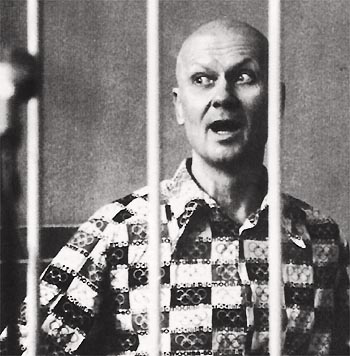
Cuando conoci a Andrei pense que era un episodio ovni curioso, una falla en la naturaleza, y nada mas. Apasionante pero plano, en la saludable lejania de la enfermedad. Aqui, en Los Balcanes, reconozco su rostro real. Hay mas.
Andrei solo dejaba los huesos. Tenia verdadera hambre. Rostov, como Bulgaria, dan apetito. La escasez es un adjetivo vacio. Todo a lo lejos nos parece sencillo. Andrei es adorado por miles de seres comodamente. El carnicero de Rostov, en esa aridez sovietica, no aparenta un ser con unidad familiar e hijos.
Andrei era un comunista irredento. Aqui hay muchos. Si para tantoos la familia es una prision o una mentira social, el comunismo es una familia millonaria en miembros, funcionarios de prisiones y padres represores. Ahora la familia de Andrei es capitalista. Los crios compran camisetas con su cara descompuesta, su sonrisa pavorosa. Su historia es la de un tiempo que un imperio trata de ocultar y que gloso de forma ridicula a continuacion. During the early part of the twentieth century, the former Soviet Union was often subjected to famines, especially in the Ukraine after Stalin crushed out private agriculture and sent many citizens to the Siberian Gulag. Some six million people died of starvation, according to Cullen, and desperate people might remove meat from corpses to survive. Sometimes they went to a cemetery, where corpses were stacked, and sometimes (legend has it) they grabbed someone on the street. Human flesh was bought and sold, or just hoarded. Children saw disfigured corpses and heard terrible tales of hardship. Chikatilo had grown up during several of these famines and one story that his mother told was how he once had had an older brother, Stepan, who had been killed. In a prison interview, he said, "Many people went crazy, attacked people, ate people. So they caught my brother, who was 10, and ate him." He might simply have died and been consumed, if he even existed (which could not be corroborated in any records), but Chikatilo's mother would warn him to stay in the yard or he might get eaten as well. It was a scary idea, but titillating. He also saw the results of Nazi occupation and of German bombing, with bodies blown up in the streets. He said that they frightened and excited him.
Most of his childhood was spent alone, living in his fantasies. Other children mocked him for his awkwardness and sensitivity. He began to develop anger at this age, even rage. To entertain and empower himself, he devised images of torture, and these remained a fixed part of his killings later in life. He had his first sexual experience as an adolescent when he struggled with a 10-year-old friend of his sister's and ejaculated. That impressed itself on him, especially as he went along in life unable to get an erection but able to ejaculate. The struggle became as fixed in his mind as the images of torture. He went into the army but when he came home and tried to have a girlfriend, he found he was still unable to perform the sexual act. The girl spread this around, humiliating him, and he dreamed about catching her and tearing her to pieces. His life, as far as he could see, was now a disaster. He became a schoolteacher and did get married (which was arranged by his sister), but could only conceive children, according to the HBO documentary, by ejaculating outside his wife and pushing his semen inside by hand. Much like his mother, his wife was critical, which only made Chikatilo withdraw even further into his fantasy world. His mother died in 1973 when he was 37, and it wasn't long before he found himself attracted to young girls and began to molest them. It made him feel powerful, and when incidents were reported, they were met with cover-up and denial instead of prosecution, allowing a pervert to become a killer. For true satisfaction, he needed to get violent, and by 1978, he killed his first victim. Since he was on the road quite often as a parts supply liaison, it became easy to find vulnerable strangers, dominate them and murder them. He didn't have to go looking for them, he said. They were always right there and they were usually willing to follow him. He had read the newspaper reports about the murders when the press was allowed to print them and had known it was only a matter of time before it would all end. Being arrested, he admitted, was a relief. Chikatilo believed he suffered from an illness that provoked his uncontrollable transgressions. He wanted to see some specialists in sexual deviance, and said that he would answer all questions. (Lourie says this was part of Kostoyev's plan.)He was sent to Moscow's Serbsky Institute for two months for psychiatric and neurological assessment, and it was determined that he had brain damage from birth. It had affected his ability to control his bladder and his seminal emissions. His mother criticized him for it repeatedly, and was often cruel. He had deviant fantasies. However, after all the reports, he was found to be sane. He knew what he was doing and he could have controlled it. That was good enough for the prosecutor.
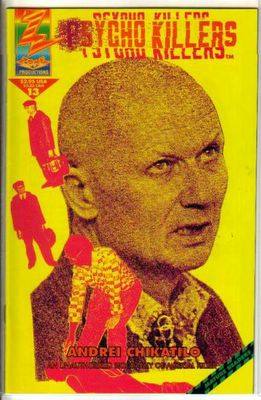
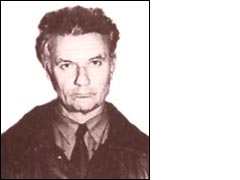
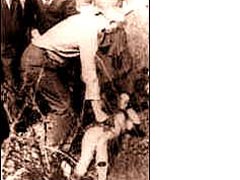
 Licenciado, profesor, asesino, psicopata, prisionero, ejecutado.
Licenciado, profesor, asesino, psicopata, prisionero, ejecutado.
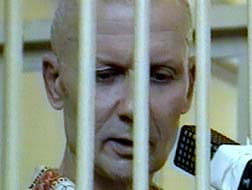
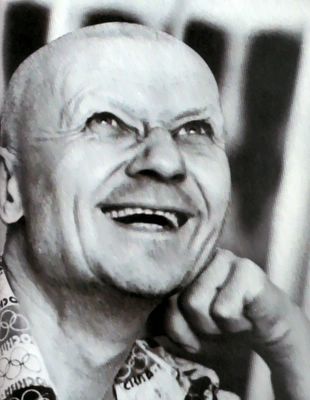
No hay comentarios:
Publicar un comentario